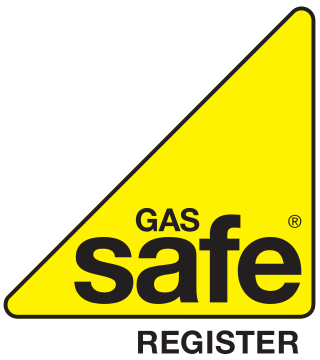
An electrician is a tradesperson specializing in electrical wiring of buildings, transmission lines, stationary machines, and related equipment. Electricians may be employed in the installation of new electrical components or the maintenance and repair of existing electrical infrastructure. Electricians may also specialize in wiring ships, airplanes, and other mobile platforms, as well as data and cable lines.

Professional diving is underwater diving where the divers are paid for their work. The procedures are often regulated by legislation and codes of practice as it is an inherently hazardous occupation and the diver works as a member of a team. Due to the dangerous nature of some professional diving operations, specialized equipment such as an on-site hyperbaric chamber and diver-to-surface communication system is often required by law, and the mode of diving for some applications may be regulated.
Electrical wiring in the United Kingdom is commonly understood to be an electrical installation for operation by end users within domestic, commercial, industrial, and other buildings, and also in special installations and locations, such as marinas or caravan parks. It does not normally cover the transmission or distribution of electricity to them.
British Standard BS 7671 "Requirements for Electrical Installations. IET Wiring Regulations", informally called in the UK electrical community "The Regs", is the national standard in the United Kingdom for electrical installation and the safety of electrical wiring in domestic, commercial, industrial, and other buildings, also in special installations and locations, such as marinas or caravan parks and medical locations

Product certification or product qualification is the process of certifying that a certain product has passed performance tests and quality assurance tests, and meets qualification criteria stipulated in contracts, regulations, or specifications.
The Council for Registered Gas Installers (CORGI) operates a voluntary registration scheme for gas installers in the United Kingdom. From 1991 to 2009 registration with CORGI was a legal requirement for gas operatives and businesses throughout the UK, and before April 2010 in Northern Ireland and Guernsey
In electrical engineering, low voltage is a relative term, the definition varying by context. Different definitions are used in electric power transmission and distribution, compared with electronics design. Electrical safety codes define "low voltage" circuits that are exempt from the protection required at higher voltages. These definitions vary by country and specific codes or regulations.

In electrical safety testing, portable appliance testing is a process in the United Kingdom, Ireland, New Zealand and Australia by which electrical appliances are routinely checked for safety. The formal term for the process is "in-service inspection & testing of electrical equipment". Testing involves a visual inspection of the equipment and that any flexible power cables are in good condition, and also where required, verification of earthing (grounding) continuity, and a test of the soundness of insulation between the current carrying parts, and any exposed metal that may be touched. The formal limits for pass/fail of these electrical tests vary somewhat depending on the category of equipment being tested.

The Security Industry Authority (SIA) is the statutory organisation responsible for regulating the private security industry in the UK. Established as a non-departmental public body in 2003, the SIA reports to the Home Secretary under the terms of the Private Security Industry Act 2001.

The Chartered Institution of Building Services Engineers is an international professional engineering association based in London, England that represents building services engineers. It is a full member of the Construction Industry Council, and is consulted by government on matters relating to construction, engineering and sustainability. It is also licensed by the Engineering Council to assess candidates for inclusion on its Register of Professional Engineers.
In electrical power distribution, armoured cable usually means steel wire armoured cable (SWA) which is a hard-wearing power cable designed for the supply of mains electricity. It is one of a number of armoured electrical cables – which include 11 kV Cable and 33 kV Cable – and is found in underground systems, power networks and cable ducting.

British Approvals Service for Cables is an independent accredited certification body headquartered in Milton Keynes, United Kingdom. Here, the organization's dedicated testing laboratory also operates which is believed to be the largest of its type in Europe. BASEC was established in 1971 and principally provides product certification services for all types of cable and wire, ancillary products and management systems within the cable industry. The organization maintains operations throughout the world including Africa, Middle East, America, Asia and Europe.

Gas Safe Register is the official gas registration body for the United Kingdom, Isle of Man and Guernsey, appointed by the relevant Health and Safety Authority for each area. By law all gas engineers must be on the Gas Safe Register.

ECA is the main trade association for companies involved in electrotechnical and other technical engineering projects in England, Northern Ireland and Wales. In 2022 it had some 2600 registered members - companies who collectively generated annual revenues of over £6billion. ECA also has associate categories open to industry manufacturers, distributors, educators, clients and specifiers who wish to engage and collaborate with members.

The Building Engineering Services Association (BESA), until 2012 the Heating and Ventilating Contractors' Association, and from then until 2016, B&ES, is the main UK trade association for companies that design, install, commission and maintain heating, ventilation, air conditioning, refrigeration (HVACR) and related engineering projects.

SELECT, founded in 1900 as the Electrical Contractors' Association of Scotland, is the Scottish construction trade association for specialist businesses in the electrical industry.

The diving supervisor is the professional diving team member who is directly responsible for the diving operation's safety and the management of any incidents or accidents that may occur during the operation; the supervisor is required to be available at the control point of the diving operation for the diving operation's duration, and to manage the planned dive and any contingencies that may occur. Details of competence, requirements, qualifications, registration and formal appointment differ depending on jurisdiction and relevant codes of practice. Diving supervisors are used in commercial diving, military diving, public safety diving and scientific diving operations.

Electrical Safety First is a registered UK charity working with all sectors of the electrical industry as well as local and central government to reduce deaths and injuries caused by electrical accidents.
The Quality Council of India (QCI) was set up as a public private partnership model on the model existing in Netherlands at the time, where although the NAB was not owned by the government, yet it was supported by it and was exceedingly used as a third party agency to improve quality in departments and industry. QCI thus, came to be organized as an independent autonomous body that worked towards assuring quality standards across all spheres of economic and social activities. Key industry associations, i.e. Associated Chambers of Commerce and Industry of India (ASSOCHAM), Confederation of Indian Industry(CII) and Federation of Indian Chambers of Commerce and Industry (FICCI) became the promoters of the organizers and QCI got established under the Societies Registration Act in 1996 to provide accreditation services in various sectors for product, services and persons.
A competent person is designated by a company to ensure that the company's health and safety responsibilities are being met. This may be a legal obligation required of the company, to ensure that the business understands, and can act on, the health and safety risks that might occur during their particular type of work.












